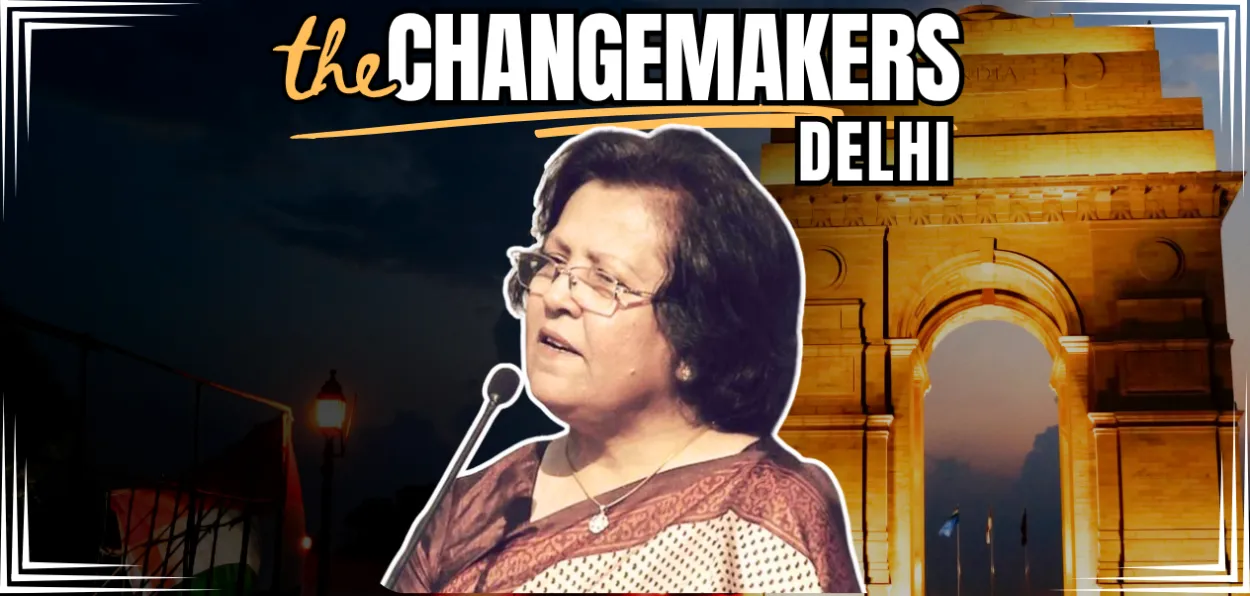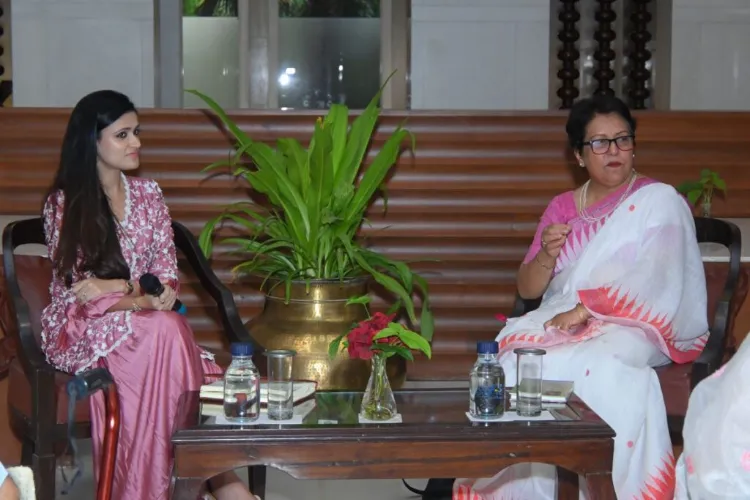
Aasha Khosa
Azra Naqvi wears many hats, but her core remains attached to Urdu, the language, she claims, she breathes, thinks in, and is in her DNA. Despite having lived a fulfilling life with her husband in many countries, dabbled in different professions and roles, her heart always pined for her favourite language.
After returning to Delhi in 2017, Azra found a job to fulfil her passion. She became a consulting editor with Rekhta Foundation, which works towards preserving and promoting the Urdu language. The Foundation curates the largest online repository of Urdu poetry that has brought authentic Urdu poetry to its lovers at the click of a button.
.png)
Rekhta garners a readership from over 150 countries and is credited with reviving the popularity of the language among its readers and non-readers, too.
Azra is one of founding members of BANAT which is today led by Nigar Azim (President) and with Tasneem Kausar as its secretary. Azra Naqvi is serving as Vice-President of BANAT.
The group uses the WhatsApp mobile application to promote the work of women writers and create a writers’ sisterhood. Tanseem kausar maintains its Facebook page as BANAT Live.
Naqvi said using the WhatsApp group, BANAT collected theme-based writings of 40 women writers. “There is a strict rule not to discuss religion or anything other than literature in the group.”
She told Awaz-the Voice that the stories collected through this group are have been recently published as three anthologies. These are Yadon ke Dreeche, (Window to memories), Jo aksar yaad aate hain (One whom we remember often) and Log kya kahen gai (What will others say).
Nigar Azim has edited all the three books.
BANAT members meet each year for their literary interaction. “BANAT celebrated its ninth edition lat month in Bhopal, Madhya Pradesh,” Azra said with child-like excitement.
She is currently working on Rekhta’s etymological project to build a multilingual dictionary using Hindi-Urdu-English, and will soon include Gurmukhi (Punjabi script).
 Azra Naqvi during a media interview
Azra Naqvi during a media interview
Azra Naqvi, who lost her husband a few years ago and lives in Noida, continues to live a fulfilling life at 73. “I am living in a fascinating world of words; this world is unlimited and has infinite possibilities.” She says in a tone that can infuse life into the dead.
Azra Naqvi has inherited her love of the language. She was born into a family where she was raised amid books and writers.
“Though I love the French language, which I learned while I was in Canada, I can only think in Urdu; feel in Urdu, and I can best express myself in Urdu.”
Her (Maternal) grandfather was one of the founders of the Jamia Millia Islamia, a central minority university in Delhi. Her mother was a poet and a well-read person. “She would read the translated classics in Urdu.”
The family moved to Aligarh in 1957 due to her father’s job with the Aligarh Muslim University, and Azra studied at Abdullah Girls High School, which is now part of AMU.
Under family pressure, she completed her M.Phil degree in Adaptive Biology from JNU, and yet she longed to write in Urdu.
Her marriage to a Computer Scientist in 1976, in her mid-twenties, took her to Iraq and Canada. In Montreal, she enrolled for a doctorate in Artificial Intelligence, learned the French language, and also taught in a kindergarten there.
Always a pioneer, during her 12-year stay in Canada, she worked to empower South Asian women. She taught them French, an important language in Canada, and tax literacy.
She also worked with King Saud University in Riyadh.
Azra recalls that she found some rules during their 15-year-long stay in Saudi Arabia stifling and irrational. “I got a chance to work in Sewa, a nursery for Indian children and a special care centre for mentally challenged children, for about four to five years.’’
Her first tryst with Urdu happened when she translated 'Voices of Change', a collection of short stories written by Saudi women writers in the 60s. “I was surprised that women were writing about their problems so frankly. I translated this book from English to Urdu, and it was very well received. The book was titled, Saudi kalmakaar aurton ki munthakhib kahaniyan.
She compiled her 15 short stories in Urdu Aangan jab pardes hua, some of which document the cultural differences and plight of immigrants.
ALSO READ: Business leader Sirajuddin Qureshi changed mindset on women's education
Author of 11 Urdu books, Azra Naqvi, strongly recommends that people learn to read and write Urdu and also Hindi. "It is very disheartening to see that even children don’t know Urdu, and the same goes for Hindi.”
